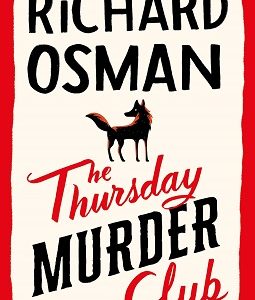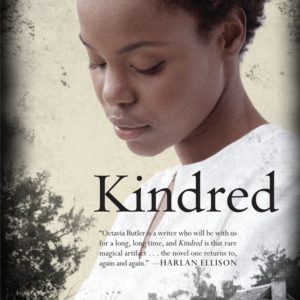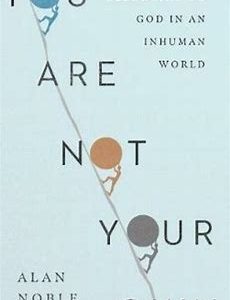Reading Recommendations
 If summer reading — meaning light and entertaining — is still a thing, I have a great recommendation for you. It is Richard Osman’s The Thursday Murder Club.
If summer reading — meaning light and entertaining — is still a thing, I have a great recommendation for you. It is Richard Osman’s The Thursday Murder Club.
Set, improbably, in senior living residence somewhere in Britain, a gang of four concerns itself with murder cases. Each brings their own delightful personality and life-time experience to their collective hobby.
Osman’s writing reminds me of books by the Scot, Alexander McCall Smith, and his “Ladies No. 1 Detective Agency” series. Like Smith, Osman’s story and characters are wonderfully wise, humane and very funny.
So if you’re looking for a summer read that is wise, humane and funny — and who isn’t, given current news and realities — this is a great one.
I don’t know that the next two quite qualify as “summer reading,” at least if that means, “light and entertaining,” but they are great books.
One is Kindred by Octavia Butler. This was the final selection in our book group’s “African-American Writers” series this year. Butler, who died in 2008, was a pioneer among African-American writers in using the genre of science fiction.
 Although time-travel is central to Kindred, I’m not sure I would personally call this a work of science fiction — at least it didn’t fit my ideas of a genre to which I’ve mostly avoided.
Although time-travel is central to Kindred, I’m not sure I would personally call this a work of science fiction — at least it didn’t fit my ideas of a genre to which I’ve mostly avoided.
The central character is a young African-American woman, Dana, living in California in the 1970’s. She is whisked back in time to pre-Civil War American and a slave plantation in Maryland, where she has the task of saving a white boy, later young man, from mortal danger on multiple occasions. “Rufus” grows up to become a slaveowner. The twist is that he, Rufus, is also Dana’s ancestor.
It is powerful portrayal of what life was like for the enslaved. Like other such works it is based on the journals of men and women who were enslaved, though Butler commented that she had toned down some of the brutality of those narratives so that she wouldn’t lose readers.
One of the themes that struck me was that of enslaved people whose effort to survive was rooted in a long view that someday their descendants would be free and have opportunities they did not. They lived with that hope in mind. So often today our horizons are limited. These people looked generations down the line, where we find Dana, a young writer married to a white man, Kevin, in California in the late 20th century.
 Lastly, a book I’ve mentioned a couple of times here, You Are Not Your Own by English professor and Christian, Alan Noble. This is a work of Christian cultural criticism, which argues that modern culture is malformed by a false anthropology, namely, “I belong to myself alone.” A Christian understanding of human nature and life is different. We do not belong to ourselves alone. We belong to God. Our lives are a gift and a trust of Another.
Lastly, a book I’ve mentioned a couple of times here, You Are Not Your Own by English professor and Christian, Alan Noble. This is a work of Christian cultural criticism, which argues that modern culture is malformed by a false anthropology, namely, “I belong to myself alone.” A Christian understanding of human nature and life is different. We do not belong to ourselves alone. We belong to God. Our lives are a gift and a trust of Another.
Both blue and red America invoke the “I belong to myself alone,” anthropology. In response to the Dobbs decision a common chant is “My body, my choice.” Oddly, this is pretty much what red state Americans were saying about Covid and vaccination, some version of “it’s my body and up to me.” Noble argues that the claim to complete autonomy is at the root of many of our contemporary problems.
He is particularly helpful on the way that this anthropology, alleged to be liberating, enslaves its adherents in a constant quest to create their own lives and identities. Unceasing self-creation, self-improvement, and self-presentation prove exhausting.
![Anthony B. Robinson [logo]](https://www.anthonybrobinson.com/wp-content/themes/anthonybrobinson/images/logo.png)
![Anthony B. Robinson [logo]](https://www.anthonybrobinson.com/wp-content/themes/anthonybrobinson/images/logo-print.png)